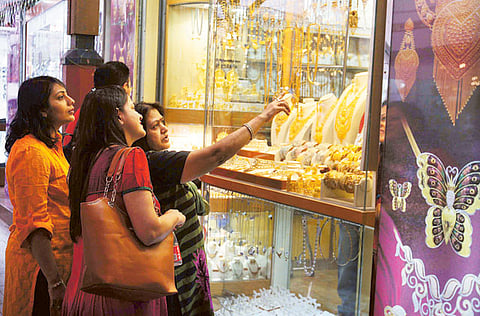Why gold will be an asset in a fintech world
It will be accessible to investors even in the smallest of denominations

Financial inclusion is a global policy priority. Some estimates suggest that two billion people are financially disenfranchised. The key to bringing bank accounts and financial services to the unbanked is digital.
Tech-driven financial innovation is breaking down barriers to finance and digital products and is increasing access to the gold market. Gold is now able to power the growth of retail financial services in both conventional and Islamic finance, helping ensure that everyone has access to, and can benefit from, modern financial products.
Recognising that access to contemporary financial products is a driver of economic growth, governments are implementing frameworks to maximise financial inclusion. At the recent G20 finance ministers and central bank governors meeting in June, top financial leaders recognised that “mobilising sustainable finance and strengthening financial inclusion are important for global growth” and encouraged greater private sector participation to help address the gap.
This follows the launch of the G20 ‘Principles for Digital Financial Inclusion’ in 2016 — a framework for governments and policymakers to close gaps in financial inclusion. The issue is pervasive. Financial inclusion is included as a target and enabler in eight of the United Nation’s 17 sustainable development goals, including eradicating poverty, ending hunger, promoting health, achieving gender equality, encouraging innovation and reducing overall inequality.
GCC and financial inclusion
Services which enable individuals to play a full role in society, to access finance to start a business, or to be financially equipped for the future. Although the GCC is home to some of the most sophisticated financial markets in the world, much of the region’s financial sector development has been bank-led — broader capital and debt markets haven’t seen the same level of development.
The World Bank measures global financial inclusion through its triennial Global Findex survey and while the GCC countries included in the latest survey featured relatively highly in terms of overall financial inclusion, on some measures more work needs to be done.
Innovation and the role of gold
Innovation, particularly in the fintech space, can fill the financial inclusion gap. Mobile phones and digital banking platforms are breaking down barriers to finance. Financial inclusion isn’t just about access to cash accounts — it is important that product innovation takes place to ensure consumers have access to a broad range of financial services products.
We are seeing this in the gold industry, where technology is bringing all the traditional benefits of gold to the mass retail market. Mobile apps and digital platforms allow users to buy and sell gold in the smallest of denominations.
No longer is investing in gold limited to those that can afford to invest in whole coins and bars — consumers can now invest in gold for as little as 50 cents.
Gold is attractive to consumers for several reasons. It protects wealth, is a powerful portfolio diversifier, it is a liquid asset, and is considered a safe haven. In many societies where financial inclusion is low, gold is the ultimate (and sometimes only) financial asset.
Access to effective diversifiers and safe-haven assets is even more important in Islamic finance where the universe of financial products is smaller. The AAOIFI Sharia Standard on Gold, which will be mandatory in the UAE following the UAE Central Bank’s announcement last year, ensures that Islamic investors can fully benefit from gold-backed products.
Many innovations are taking place in Dubai. With its well-developed financial system and supportive fintech environment, Dubai is well placed to take a lead in the development of new financial products – many of which will be based on gold.
These products are breaking down national barriers and will help ensure the global gap between the banked and unbanked will continue to get smaller getting us closer to meeting the UN’s Sustainable Development Goals.
Andrew Naylor is director, Central Banks and Public Policy, at the World Gold Council.



